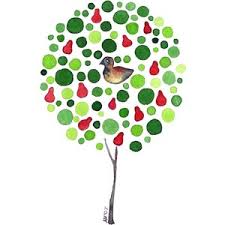Twelve Days to Save the World...

Wed, 02 Dec 2015 10:53:00 GMT
Today heralds the start of the UNCOP21, which aims to gain agreement from nearly 200 governments on how to slash greenhouse gas emissions so that we can ensure that global warming doesn’t exceed the 2 degrees widely regarded as ‘safe’ or at least manageable. Since the conference coincides with the beginning of advent, and runs for twelve days, CSRC will be blogging with the theme of the Twelve Days of Christmas.
Since Advent is a time for reflection, we would like to reflect on the role we all have in achieving a safe global sustainable climate. Even if the governments agree on a viable plan, the fulfilment of that plan requires the support and engagement of all citizens and we have to recognise that even small individual choices will make a difference. As we look forward to Christmas we might want to think about how our consumption contributes to climate change, and consider how gifts to our ‘true loves’ (and to ourselves) might be more sustainable.
On the first day of Christmas my true love gave to me – a Partridge in a Pear tree. Tree planting has long been regarded as a symbol of environmental conservation, as they not only process Co2, but also provide ecosystems that support many other types of wildlife. Fruit orchards can host a whole variety of insects and birds but also mosses, lichens, fungi, bats and newts. To maximise this the type of trees is important – the longer living the better, and they need to be managed lightly, with minimum use of chemicals. So plant a fruit tree, or better still, plant ten!
While waiting for your homegrown fruit to grow you might want to think about the type of fruit you are buying. The homogenisation of the commercial apple industry has meant that when you go to a supermarket you are lucky to get a choice of more than five types. The Brogdale National Fruit Collection (http://www.brogdale.org) has records of 21,6000 different apples from 11 European countries, which suggests that we are being deprived of much of our fruit heritage! Apart from this lack of choice, a sustainable apple industry needs these genetic differences to maximise both diversity and resilience.
If you are tempted to buy local, organic apples as a sustainable choice – you may want to think again. While there are lots of reasons for making that choice, some experts have found that it isn’t always that simple (www.agro.basf.com). Although organic apple production results in less waste water and less energy consumption from fertiliser and pesticides, the conventional apple was found to have a slightly better ecological profile. This is because the yield for organic apples is 30% lower, and there is a 70% higher use of machinery in their production. Imported apples, flown many miles across the world, are also often blamed for high carbon emissions, but again, this only tells half the story. Local apples, if not consumed within a few weeks after picking, require refrigeration that exceeds the carbon generated by their jet setting counterparts. So the maxim ‘local is better’ rather depends on the time of year you are buying your apples!
Finding solutions to the simple everyday act of apple consumption demonstrates just how complicated sustainability is! Not everyone can have their own orchard and not everyone can source heritage apples, but we can all find out more about the food we are eating and make informed choices. For example, while it is difficult to identify the perfect sustainable apple, we can check out product reports from organisations like the ethical consumer, which can help us with our decision making - have a look at - http://www.ethicalconsumer.org/portals/0/downloads/fruitjuice.pdf
Just thinking about these issues will help us move together on a ‘fruitful’ path towards more sustainable lifestyles!







